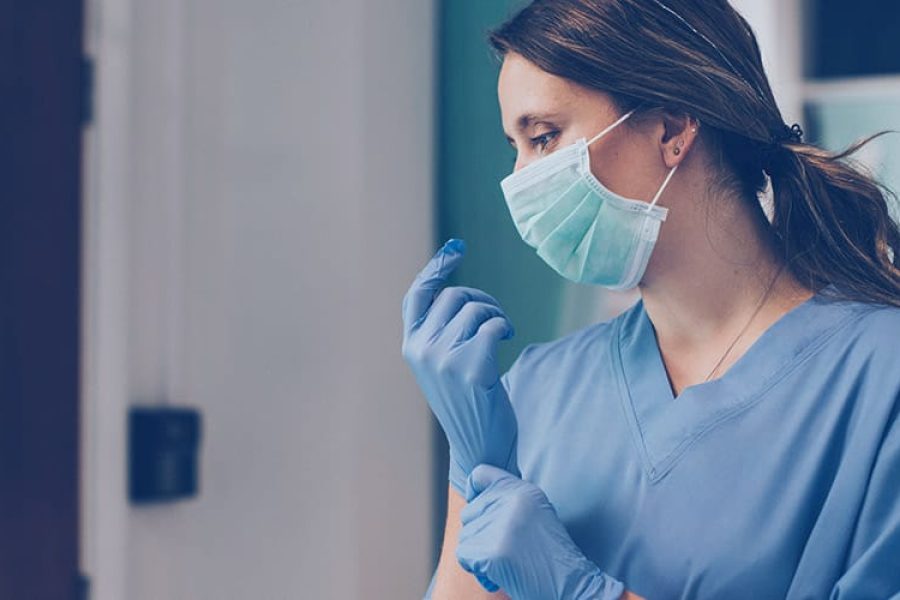Essential IPC Key Performance Indicators a Nursing Home should be tracking

Introduction
Infection prevention and control (IPC) is a critical part of maintaining a safe environment for residents and staff in a nursing home. Monitoring IPC key performance indicators (KPIs) helps identify potential issues and areas for improvement, ensuring that the residential care facility operates at the highest standard of infection prevention.
In this blog, we will discuss essential infection control KPIs that nursing homes should closely monitor to promote the well-being and safety of their residents.
IPC Key Performance Indicators
IPC and Antimicrobial Stewardship related Key Performance Indicators should be set as part of the residential care centre’s Infection Prevention and Control Programme. These KPIs must reviewed on an ongoing basis by the IPC Team and reported to the Senior Management Team monthly. They should also be reviewed as part of the Quality Improvement and Resident Safety Programme.
Below is a sample of IPC KPIs that a nursing home should consider monitoring. Areas such as surveillance, vaccinations, hand hygiene, PPE usage, education and training and antimicrobial stewardship are all key areas to monitor.
IPC, surveillance and reporting KPIs:
- Percentage of residents that received the pneumococcal vaccine within the residential home within the last 5 years.
- Percentage of residents that received the influenza vaccine within the residential home on an annual basis.
- Percentage of staff that received the influenza vaccine an annual basis.
- Percentage of residents with MRSA / C.diff / Norovirus / COVID-19.
- Number of hours between onset of COVID-19 symptoms until testing completed.
- Percentage of residents within the residential home being cared for with contact and transmission-based precautions.
PPE and Hand Hygiene KPIs:
- Number of Gowns used per location.
- Number of boxes of gloves used per location.
- Volume of Alcohol based hand rub used per location.
- Volume of Hand Hygiene Soap Used per location.
- % compliance of staff to hand hygiene audit (World Health Organisation’s (WHO) 5 moments of hand hygiene).
IPC Education and Training KPIs:
- Percentage of staff that received HCAI/IPC related training within the residential home.
- Percentage of residents receiving information on HCAI’s, how they can be prevented, and the risk associated with non-adherence to IPC requirements.
Antimicrobial Stewardship KPIs:
- Percentage of residents that were prescribed new antibiotics starts within the residential home.
- Percentage of residents that were prescribed repeat antibiotics within the residential home.
- The sum of all antibiotic days for all residents in the facility during a given time frame.
Guidance for Preparing KPIs
When writing a KPI, it is important to include:
- A description of the data being collected – is it a percentage, a total number or number of bed days?
- How frequently the data is collected and reported – collected weekly/monthly and reported monthly/annually?
- How the KPI is calculated – calculating the percentage
- How the information is trended – is an average over the month compared month on month
- How the data is collected – residents records, incident management system, etc.
- Where the data is report to – IPC Team, Management Team, etc.
Conclusion
Monitoring IPC KPIs is essential to ensure a safe and healthy environment for residents. By diligently tracking these metrics, nursing homes can identify strengths and weaknesses in their infection control practices, allowing them to implement targeted interventions and continuously improve their standards of care. Prioritising infection control not only protects vulnerable residents but also demonstrates a commitment to providing the highest quality of care in the nursing home setting.
At HCI we help providers of health and social care make intelligence driven decisions to attain, manage and improve quality, safety and regulatory compliance. We have been implementing Quality and Safety Management Systems in health and social care organisations for almost two decades. Our Quality and Safety Specialists have extensive experience in developing and monitoring IPC KPIs as well as undertaking data validation through independent programmes of Infection Prevention and Control. Our team can also help you to identify and implement the appropriate QIPs to drive quality improvement and promote resident safety.
If you would like further information on Infection Prevention and Control support service, contact HCI at +353 (0)1 629 2559 or email info@hci.care.